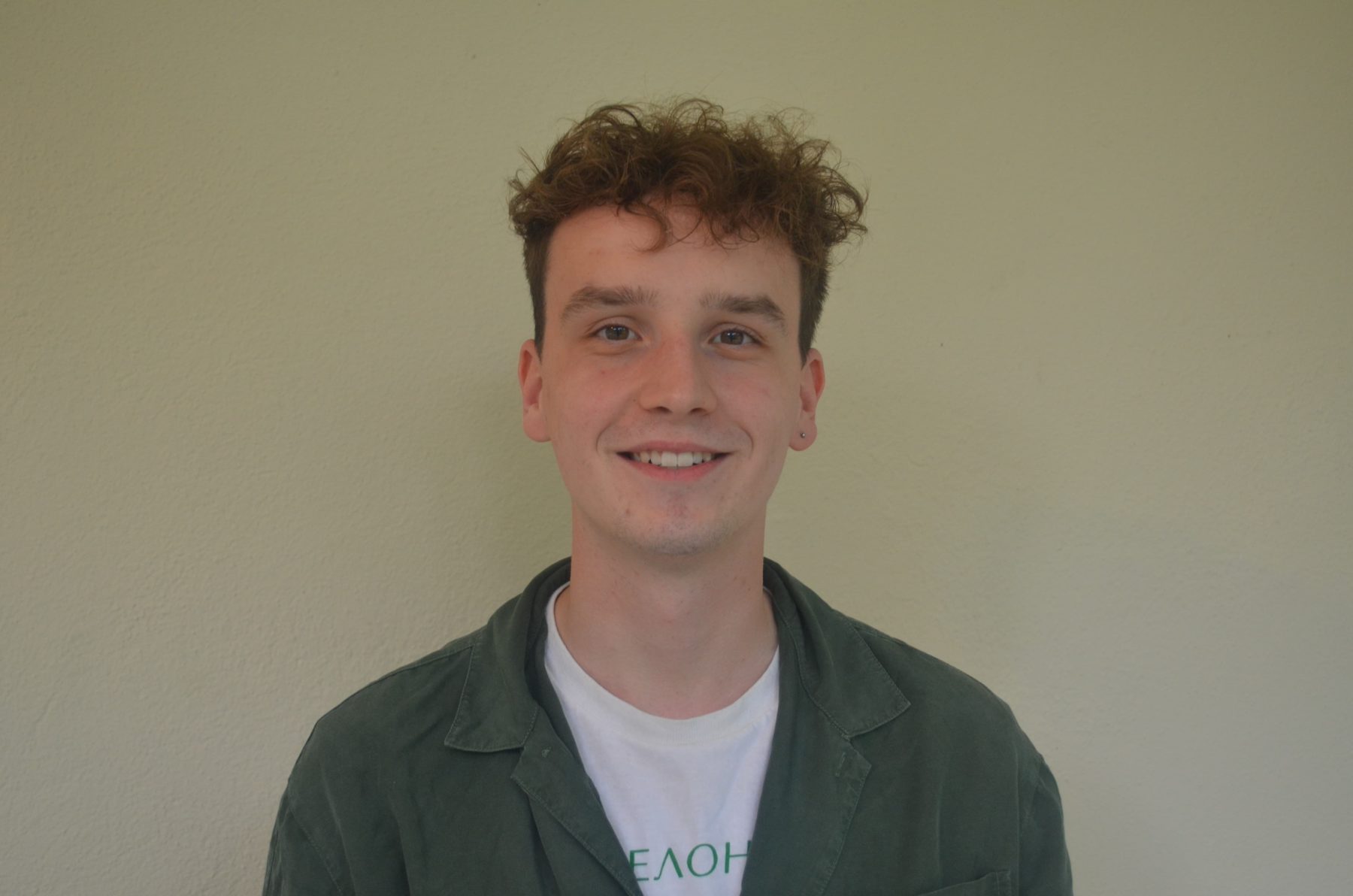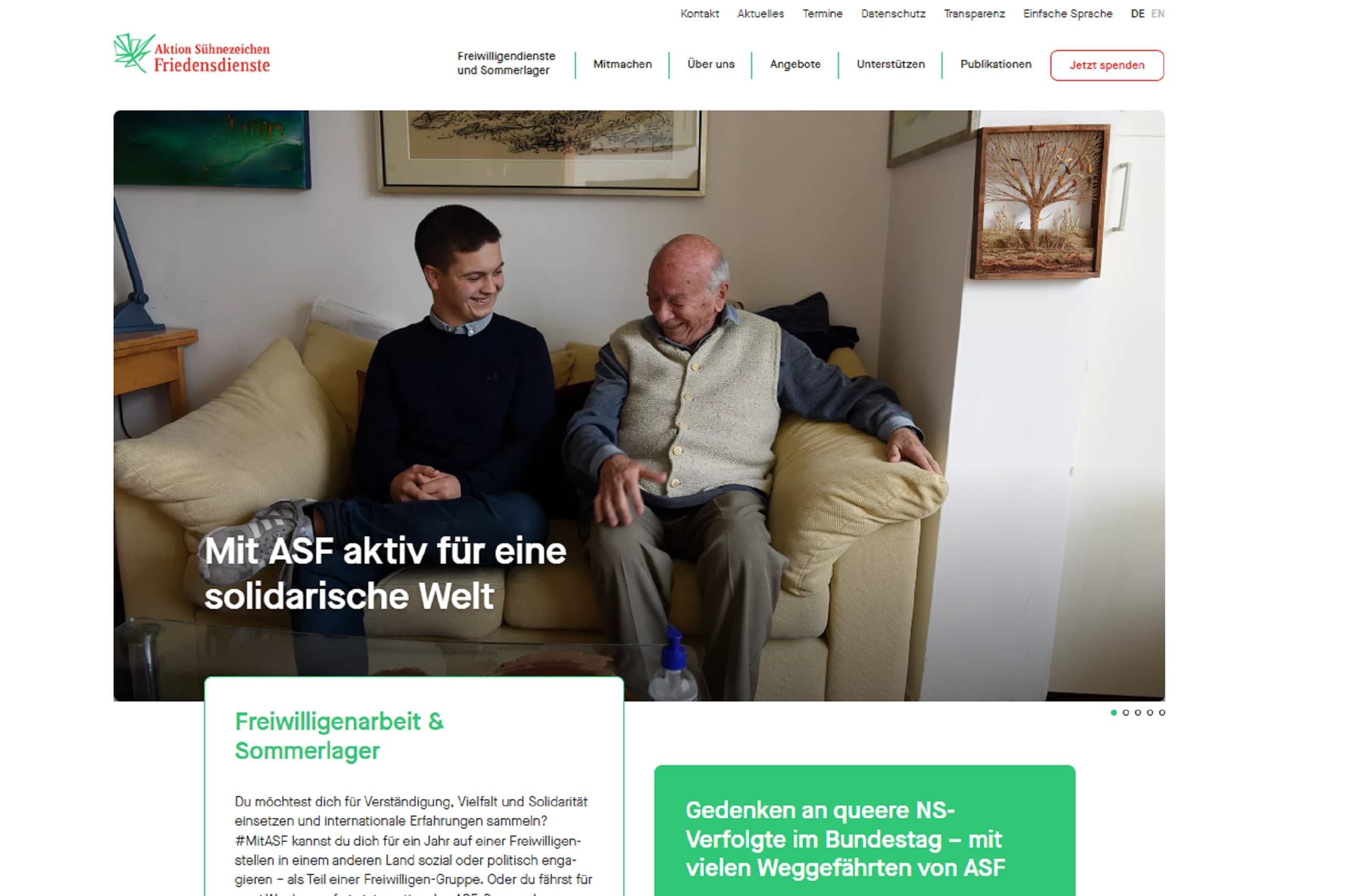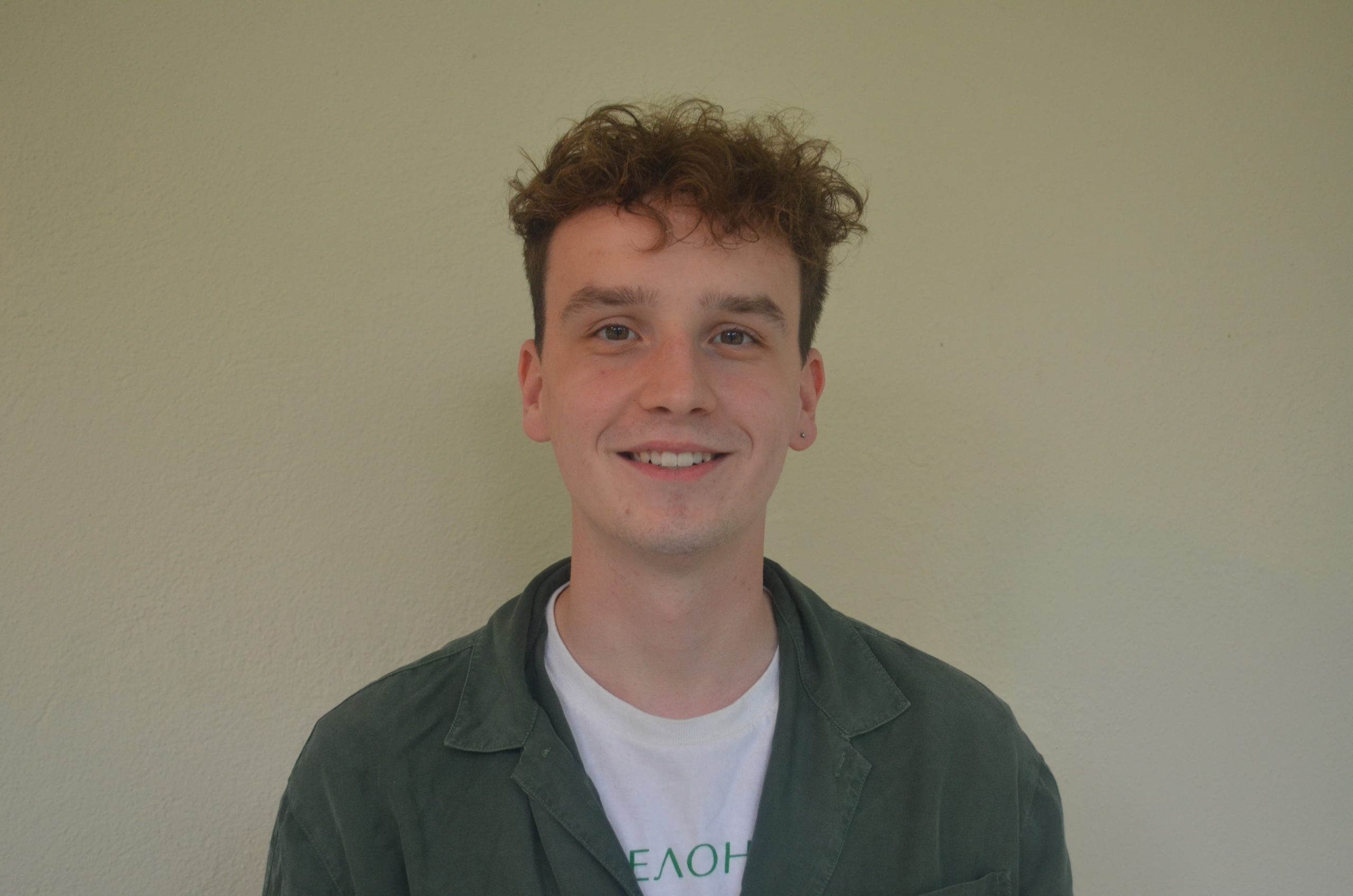Volunteer stories
Camden: A Love Story

Two opposite worlds collide – from the Black Forest to the streets of Camden
Growing up catholic in a small German village, in the Black Forest, the “Schwarzwald,” Wolfgang had a connection to the church early on. He actively participated in the church and founded a local catholic youth group. But increasingly, he got frustrated with a church that felt so out of touch with young people and current world affairs. Civil wars raged in African countries, and the horrible pictures from the war in Vietnam eventually made it to German news publications. He felt helpless and disappointed that the church didn´t do more and didn’t even seem to care about these people, who in his opinion would need the help of the church most. He largely pulled back from his church engagement and didn’t expect to ever get back to it again.
Leaving his work in the church behind, Wolfgang got time to focus on another passion: writing and journalism. After graduating from high school and getting his “Abitur” (diploma), he immediately was hired as chief reporter and editor of a local newspaper, while still only training to become a journalist. Being the only employee there meant he got all the freedom and responsibility that came with being in charge of something. It was his little project. To this day he keeps a box with every single newspaper edition he worked on in his house. It was also what nearly made him cancel his arguable most influential life decision: serving with Action Reconciliation Service for Peace in the United States.
“Hello, I am Wolfgang”
As any other young German at this time, he faced the inevitability of doing either military or civil service, for at least 18 months (the mandatory military- or civil service in Germany was only deferred as recently as 2011). As a believing pacifist, he was sure he wouldn’t serve in the military. His religious background and resumé also gave him enough credibility, to be accepted as a conscientious objector. He remembered how appalled he was in high school, that the crimes of the Nazis, especially the Holocaust, barely got mentioned by his teachers. He could not believe that Germans weren’t more invested if not educated in this time and that they were not remembering the victims and mentioning the perpetrators. Being frustrated with a conservative “Zeitgeist” and the remembrance culture of that time, that seemed more eager to forget than to remember, he looked for an opportunity to do something that would break this culture of silence, as well as establish a more just and peaceful world.
ARSP, an organization known for breaking taboos and fighting for change in the way Germany dealt with its past, seemed to be a perfect fit for him. Luckily ARSP found Wolfgang to be a good fit for their mission as well.
After a short preparation in Germany, he and five other young Germans arrived in the United States in November 1975, nearly 50 years ago. A country they barely knew and which seemed so distant to them. Being pioneers (ARSP started sending the first volunteers to the United States in 1968), certainly made it all seem like even more of an adventure.
Wolfgang would later say he had an “uncritical, positive” view of the country. He knew that problems, like racism, existed in the country, but had no clear picture of it. Having to live and work in Camden, to this date one of the most diverse cities in the country, would change that. He would learn about the deep systematic racism, which is still seen in many institutions today. The very promise of the American dream, as written in the American Declaration of Independence that “all men are created equal” fell short in Camden—and is still falling short to this day—in the city where people probably dreamt their personal American Dream.
There is always something to do in Camden
Ironically, Wolfgang, who had grown a strong resentment towards the church, had to work not only for one but for multiple churches – a largely African-American congregation, a largely Hispanic congregation, and an old German-speaking congregation. Together these different church congregations formed the Camden Lutheran Parish.
But that didn’t deter him from finding joy and developing a passion for his work, especially the after-school-program, which was under his supervision. There he could truly feel his work’s impact on the community – how the simplest of actions could make a big difference for these children. But he also found what was lacking in his church back home: an active church, a caring church, and a church that actively fights for social justice.
“You know”, Wolfgang said, while we were having a debate about the impact of our peace services, “Camden was so desperate, so poor, so miserable, that just a small effort made a huge difference there.” Of course, portraying Wolfgang’s work in Camden as a “little effort,” is beyond an unjust mischaracterization of his efforts. In the end, he (co-)founded numerous organizations to help those in need in Camden, including a church, affordable-housing cooperation, and a day shelter for people who experienced homelessness. His life and work in Camden definitely left a mark on the city.
Camden’s impact on Wolfgang
But not only did Wolfgang transform Camden, it undeniably changed him too. It was in Camden, where he met his wife Margaret, another Lutheran Pastor, and one of the first female Lutheran African-American pastors in the country, and together they built a family, consisting of them and their two sons Kyle and Josef. And even in the vulnerable and often fast-changing phase of raising a young family, they didn’t leave Camden. Although Josef’s birth was dramatic and exhausting for the family and required a lot of attention and medical care in the aftermath, Camden was still the place that felt like home, like the place where they were supposed to be. It was the community to which they belonged and were a part of.
To this date, Wolfgang also proudly cherishes his German roots: he eats his eggs hard-boiled, prefers the beer from his home country, and is quite on time. I was curious if he ever got homesick or regretted settling here. He smirkingly answers, that he only felt homesick when he was back in Germany after his volunteer service: homesick for Camden.
48 years of ARSP-Volunteers at Christus Lutheran Church
On my way back from Cary to Camden, where 48 years later I would be one of Wolfgang’s many successors (something between 30 to 40 ARSP volunteers must have done their service in Camden in all those years), I am thinking about the impact of our peace services. Almost fifty years, half a century, 9 US Presidents, and a lot of ARSP volunteers later, Camden still seems to be the same place that it was when Wolfgang arrived there in the early 1970s. Still dangerous, still poor, still hopeless? Is Camden unchangeable? Did all the work really make a difference?
Yes, it did. And it mattered since the first time Wolfgang started working here. It mattered because each day, we did and do these little differences, which, as Wolfgang said, can have a huge impact on peoples’ lives. It matters when I serve lunch for people who experience homelessness, or when I teach English to immigrants, hoping to find a better life here. It mattered for all the children who had the opportunity to participate in Wolfgang’s summer camps or who attended his after-school program where a loving adult would pay attention to them in their needs. And yes, we haven’t changed the world, the USA, or even Camden, but I refuse to believe, that we didn´t change some people’s lives, if not for a few moments of their day.
Describing his work in Camden, Wolfgang says something that has stuck with me since: “We will always fall short, but that’s not a reason for not trying.” Out of my own experience I know that not only I, but all my colleagues at Joseph´s House, all the Sisters at the Saint Joseph’s Neighbourhood Centre, and all the members of the Christus Lutheran Church Camden try every day to make Camden a more peaceful and fairer place. And all the ARSP volunteers in the past certainly did the same. And that is also the exact reason why Camden should be at the heart of ARSP’s Mission – I truly believe it is here where a volunteer can make the biggest difference. Wolfgang is arguably the best example of someone, who made a difference through his service.
At the end of my visit he tells me that he got a present for me. He proceeds to rummage in a box and gives me a large bumper Sticker. It says “God loves Camden.” Well, it seems like Wolfgang does too. What makes his service there truly remarkable, is that he embraced all those opportunities, chances, and most of all the people in a city that most had forgotten about. Perhaps he is the person with the strongest love, enthusiasm, and devotion for Camden.
I wish to thank Wolfgang, Margret, Josef, and everyone who opened their hearts and minds to me. I am deeply grateful for your hospitality and inspired by your work.

